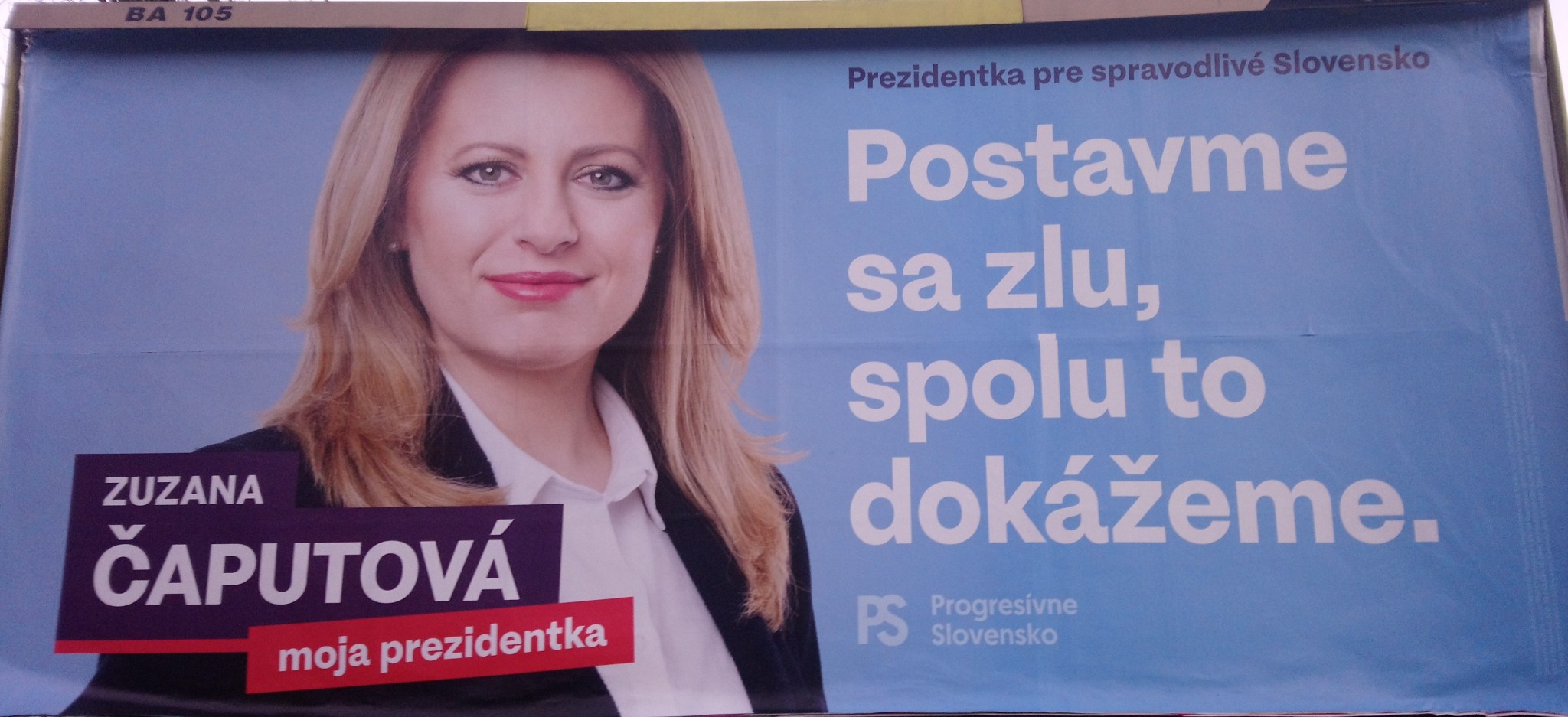From Outsider to Slovakia’s First Female President: How New Political Actors Are Changing Contemporary Slovak Politics

After Slovak media reported on February 26, 2018, that the murder of investigative journalist Ján Kuciak and his fiancé Martina Kušnírová might be connected to top government officials, it seemed Slovak politics had hit the low point of the new democratic era.
One year later, the picture is entirely different. The main murder suspect is in police custody, Slovakia’s capital Bratislava chose young architect-activist Matúš Vallo as mayor, and Slovak voters have just elected the first female president in the Visegrad Four region, Zuzana Čaputová. How did this dramatic change of scenery occur? Why has Slovakia, a country sometimes prone to elect strong men with very little appreciation for liberal democracy, elected an environmentalist lawyer-activist woman from an extra-parliamentary progressive political party?
The protests, however, meant not only an end to some corrupt politicians’ careers—but they also sparked hope that the country could do better. Once politically disengaged citizens started organizing themselves and recorded significant victories in November’s municipal elections.
Major Slovak cities rejected the antiquated political class and elected young mayors hailing from civil society, such as Vallo in Bratislava. Thirty years after the Velvet Revolution, Slovaks realized that they could once again collectively change the course of their country.
In this atmosphere, little known activist lawyer Zuzana Čaputová decided to run for president.
Paradoxically, what was once seen as the biggest obstacle to her chances, became in the end her strongest asset—dedication to her principles and unwillingness to compromise on them at any cost. This gave her an authenticity that Slovak voters, and more generally the Western public, were waiting for. In a conservative country, she was not afraid to openly present her liberal convictions, from advocating for a circular economy to support the right of same-sex couples to adopt. People did not necessarily look for candidates with the same opinions as theirs; they were looking for someone unafraid to speak their mind.
Despite being a strongly pro-system and pro-democratic candidate, Čaputová was able to define herself as an anti-establishment candidate who has fought against corrupt elites and organized crime her whole life. In a country where a majority of citizens believe the government does not do its job well and the country is heading in the wrong direction, distancing herself firmly from the ruling elite struck a chord.
Digital innovation also played a significant role in this election. Compared to the 2014 elections, online tools significantly increased the number of chances for voters to see candidates “in action”—after the Periscope streaming application was introduced to social media platforms in 2015, it became incredibly easy and cheap to broadcast debates between candidates.
During the 2014 presidential election, voters could see debates of candidates only on television just days before the election. In 2019, people saw dozens of debates constantly streamed online for weeks. Čaputová, a skilled orator, used this opportunity to the fullest. Analyzing her polling numbers, one can see that her support skyrocketed after a series of debates from 10.2 percent on January 28 to 27.6 percent on February 19—forcing centrist candidate Robert Mistrík to leave the race and support her. The rest is history.
When her Progressive Slovakia (PS) party took part in IRI’s Summit of Emerging Parties in Madrid last year, she had the chance to meet other new political parties from around Europe. Elected from around the region reassured PS that their goals, if they work hard, could be achieved. Experience sharing and direct information exchange between smart and dedicated people consistently brings results.
One year later, PS delivered the first female president in the history of Slovakia and has established an electoral coalition for European Parliament election with the Together – Civic Democracy, another Slovak emerging party. United, they are leading the opposition in the polls.
While the story of president-elect of Slovakia is remarkable, the new generation of Slovak politicians should not rest on their laurels. In this election, more than 25 percent of Slovak voters decided to give their votes to fiercely anti-democratic candidates. This should not be taken lightly. Extremists are on the rise and are waiting for their opportunity—and history teaches us that when they get to power, they usually do not give it up easily.
Top